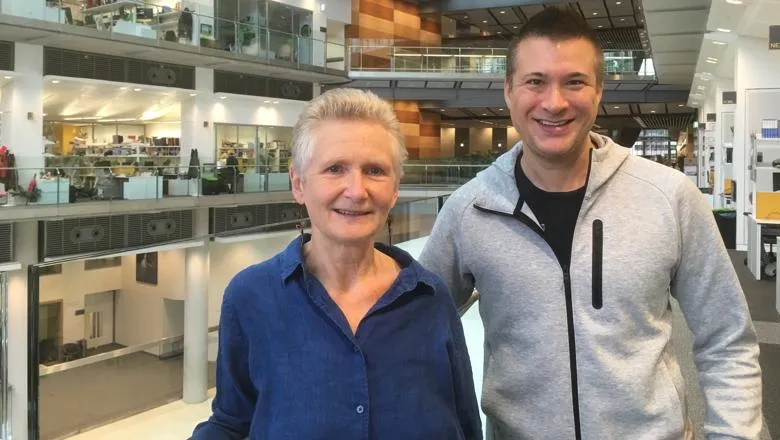14 October 2019
New ideas and inspirations
Professor Andrea Streit, Centre for Craniofacial & Regenerative Biology
A sabbatical at the Francis Crick Institute

Research in my group focuses on the molecular mechanisms that control development of the sensory nervous system in the head, and much of our efforts have recently focused on the ear. With hearing impairment being the most common congenital sensory defect and age-related hearing loss affecting more than 50% of the population over 60, understanding ear development has moved centre stage. New advances in our basic knowledge are needed to unravel the genetic causes underlying hearing loss and to design new strategies for regeneration and repair using the lessons learnt from development. Over the last five years or so, my group has taken molecular approaches to dissect the rules for ear formation. This has not only allowed us to build a circuit diagram for early ear development, but also to identify new candidate deafness genes and to predict functional consequences of genetic mutations. Projects like this generate massive amounts of new data, whose integration and analysis requires a completely new set of skills, new collaborations and importantly new ways of thinking and working.
After five years as Dean for Research for the Faculty of Dentistry, Oral & Craniofacial Sciences, I felt the time was ripe to explore new avenues to provide better support for my team and to move our research to the next level. The strong link of King’s with the Francis Crick Institute offered the perfect opportunity for a sabbatical to learn new bioinformatics and computational skills. The ‘Crick’ is among the leading biomedical research institutes in Europe; dedicated to investigating fundamental biological principles underlying health and disease and bringing together outstanding scientists from all disciplines.
Its major emphasis is on interdisciplinary and collaborative research. I decided to join the Bioinformatics and Computational Biology Laboratory led by Nicholas Luscombe. The Luscombe group has a broad interest in RNA biology, gene regulation and large-scale gene networks to understand how complex systems behave and evolved, how cells work and what happens in disease. Coming from diverse backgrounds including mathematics, genomics, biology and medical sciences, the students and postdoctoral researchers in that group are involved in both dry (computer based) and laboratory-based projects and collaborate widely across the institute as well as with colleagues at King’s, UCL and Imperial College. With this diversity, the group offered an exciting background to get new ideas and learn about new approaches.
For me, it meant going right back to basics and being a student again. Learning bioinformatics as a developmental biologist is a steep learning curve – a bit like learning a new language. Programming languages and UNIX commands are the new vocabulary which needs to be understood, interpreted and remembered, and organised into command lines using new rules – the new grammar. While it was exciting to learn something completely new to take back to my group at King’s, it was just as stimulating to be in a new environment. A constant flow of international speakers on a broad range of subjects, special interest groups focused on specific topics and informal meetings to discuss science make for an excellent backdrop to look at science in a different way. The most important benefit however was to establish long-lasting connections and build foundations for new collaborations, and open doors for my own team. One of my own postdocs is now a regular visitor in the Luscombe group and has established an extensive network of colleagues across different groups at the Crick – a first step towards independence.
Overall, the sabbatical at the Francis Crick Institute has been a fantastic opportunity to explore new avenues, recharge and get new scientific inspirations.
Click here to return to the 2019 festive season update website.
